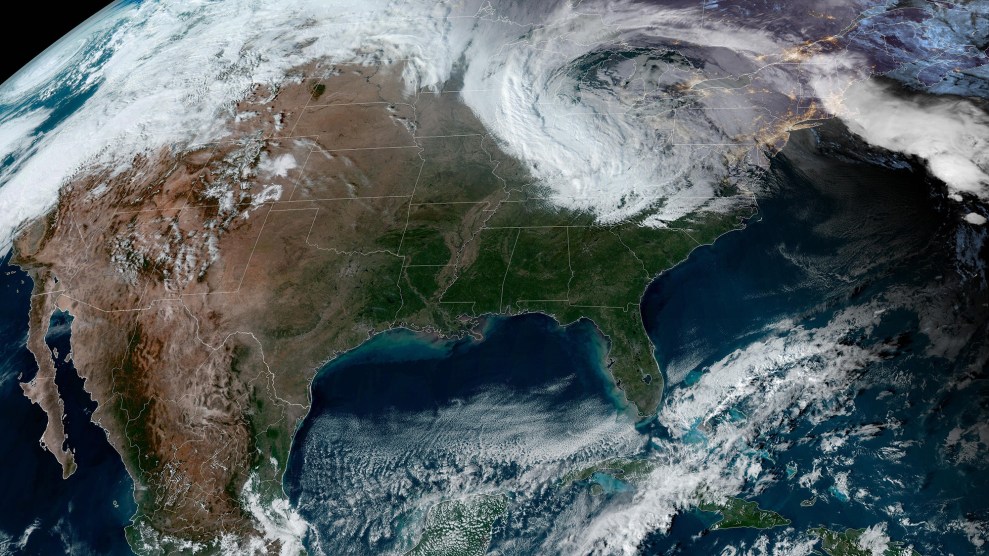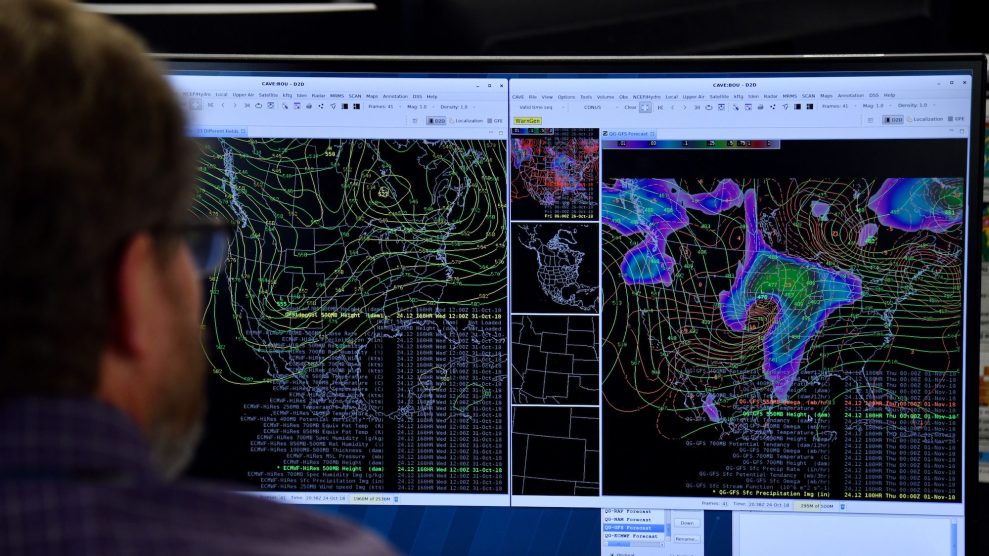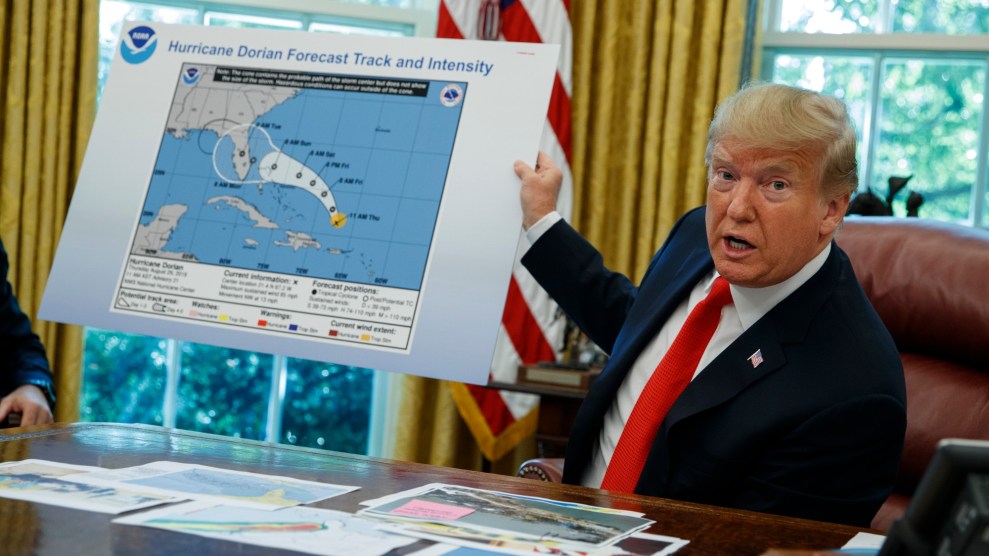
NOAA/ZUMA
This story was originally published by the Canada’s National Observer and is reproduced here as part of the Climate Desk collaboration.
Canadian climate and fisheries experts are reeling after the Trump administration ordered researchers with the National Oceanic and Atmospheric Administration (NOAA)—the US government agency in charge of weather forecasting, climate research, and fisheries—to temporarily stop communicating with “foreign nationals.”
The move, which was first reported Wednesday by Wired, could devastate weather and oceanic forecasting, climate change research, and Canada’s ability to manage and study key fish stocks like Pacific salmon and halibut, experts and advocates say.
“This is not a small blow for climate research—it is a body blow,” said Tzeporah Berman, a long-time Canadian climate advocate and expert. If implemented permanently, the move would hamstring some of the world’s most important climate monitoring data and modeling, making it hard to assess the scale of the crisis and craft effective responses.
“Neither Trump nor Musk have the power to secure the US’s borders against climate change,” Berman said. “The fires and floods know no borders and it is absolutely critical that the world share data and solutions on shared global threats. Trump and Musk constraining NOAA from collaborating threatens us all, including us citizens. It’s a dangerous, closed minded, knee jerk ideological policy that could literally cost lives.”
An internal email shared with Wired shows that employees at the National Marine Fisheries Service (NMFS) were told to “PAUSE ALL INTERNATIONAL ENGAGEMENT” (sic), including international commissions and emails with “foreign national colleagues.”
The ban extends to the National Environmental Satellite, Data and Information Service, which works extensively with international partners to collect climate and weather data that is vital to protect air, shipping and railways from extreme weather, in addition to its value for climate research. Both organizations are contained within NOAA.
The move could hide measurements from the Mauna Loa Observatory carbon dioxide monitoring program, widely considered the world’s benchmark measures. It could also eliminate a key global temperature record used by climate researchers worldwide, global monitoring for rising sea levels and ocean temperatures and lead to weaker climate modeling and forecasting. The move will also disrupt countries’ ability to meet their global climate commitments; and limit developing nations’ ability to prepare for climate disasters, Berman said.
While other organizations in Europe, Japan and the UK could help fill the hole, the loss of NOAA data would be a “major setback” for global climate science, Berman warned.
“Those data sets are not only of the US,” said Tianjia (Tina) Liu, a University of British Columbia geography professor who specializes in wildfire. “Having them is really beneficial for the entire region, and really helpful for managing natural disasters.”
In a statement, Environment and Climate Change Canada confirmed it has a “longstanding relationship” with NOAA in weather, climate, satellite, and water monitoring. It has “not officially been informed of any changes to its collaboration with NOAA.”
Villy Christensen, a professor at the University of British Columbia and founder of a decades-long approach to managing fisheries that focuses on ecosystem health long used by the NMFS emphasized that blocking collaborative efforts will harm research and management decisions in the US, Canada and other countries.
American isolationism could curtail some of the decades-old committees that manage key species in both Canada and the US. Take Pacific salmon and Pacific Halibut: The fish species migrate between the countries and sustain important fisheries on either side of the border. For years, they’ve been managed through a collaborative US-Canada process that relies heavily on US data.
“These are really important joint efforts between the US and Canada to manage, assess and manage and allocate fish stocks or catches,” said John Driscoll, a fisheries scientist and policy analyst with the David Suzuki Foundation. Even if the temporary pause is lifted, the disruption could have “disproportionate effects” on both countries’ ability to manage the fish.
Still, Christensen said that ultimately, if necessary Canada and global researchers can make do without the US. Last year, the country joined most of Horizon Europe, the world’s largest research and innovation funding scheme, which allows Canadian researchers to access funding and collaborate more closely with Europe.
But he was clear that’s not the goal of science. “[Scientists] depend on collaboration,” Christensen said. ” We stand on the shoulders of giants, they walk with us—and cooperation is absolutely a requirement.”
















